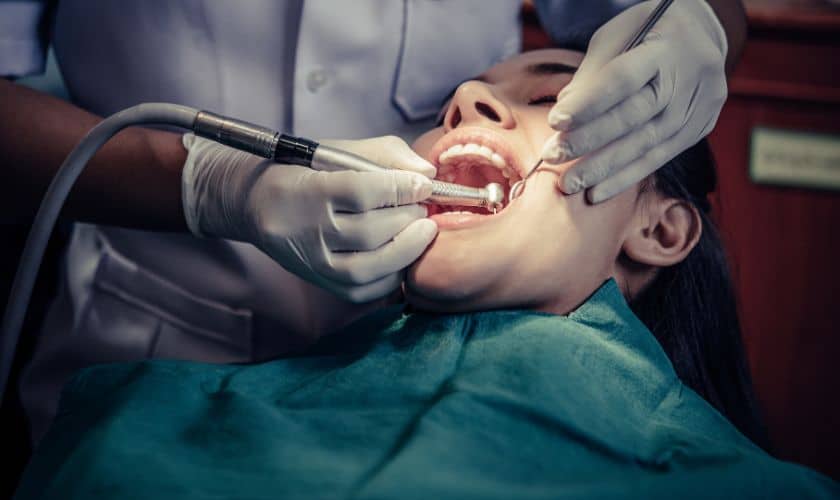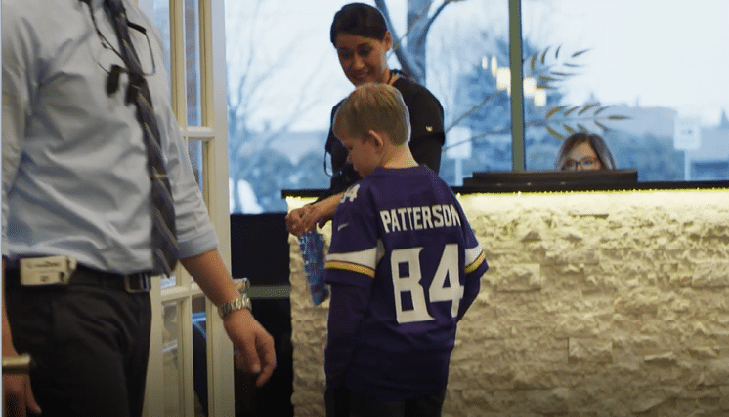820 W Laraway Rd, New Lenox, IL 60451
9 Common Signs That You Need Emergency Dental Care

Emergencies can happen at any moment of the day. Staying prepared is wise, however we never know when will we be called by one. So, here I have compiled 9 common signs that can help you know if you should visit your dentist in New Lenox now or can it wait till tomorrow!
1. You are Experiencing Bleeding:
Seeing your gums bleed after you brush or floss is a cause for concern. It is a warning sign of gingivitis or gum disease. You may even notice a smell when flossing, swelling of the gums or aching. Treatment of early gum disease is of utmost importance. Once the disease reaches a certain point, it can leave you with the inability to return your teeth to a healthy state. So seeing your dentist to determine what exactly is going on and creating a treatment plan right away can literally save your smile!
2. You have Sudden Tooth Loss:
As an adult, losing a tooth can be not only painful but also unfortunate cosmetically. If a tooth is knocked out, falls out or is loose, you’ll want to phone your dentist right away. If action is taken quickly the tooth may remain viable and can possibly be replanted. You must act fast! So if your face took a soccer ball or if your tooth decided to become one with your apple…save that tooth and call the dentist! Your dentist may give you instructions on how to preserve the tooth until you reach the office.
3. You have Swelling:
Swelling can be a major sign of infection. Infection in your mouth can be potentially life threatening. It’s important you are seen by a dentist quickly. Swelling can be present in your gums, face or even your lymph nodes. An untreated infection can get into your bloodstream and cause some serious health problems. Be sure to tell your dentist how long you’ve been experiencing swelling, where it’s located and any other signs of infection you may have.
4. You are in Pain:
Pain that is keeping you awake, radiates to your neck, jaw or ear is common when you are experiencing a serious dental issue. Lying down may increase your discomfort when this type of pain is present. You may also have persistent throbbing in your mouth, sensitivity and/or facial swelling. A dentist can complete an exam and take a few x-rays to determine what is going on. It’s important to be sign right away so you can begin treatment ASAP.
5. You have a Cracked or Broken Tooth:
The location and severity of your cracked or broken tooth will determine the treatment route your dentist will want to take. Saving the tooth is always top priority. In order to do that, it’s pertinent that you are seen in a timely manner. Be sure to describe how the injury occurred if applicable when you call your dentist.
6. You have a Growth or Sore:
If you notice a growth in your mouth, it’s a good idea to give your dentist a call. A growth or sore that doesn’t go away could be a sign of oral cancer. A dentist can provide a visual cancer screening as well as use a device that can identify abnormalities otherwise not seen by the naked eye. It’s estimated that 53,000 Americans will be diagnosed with oral cancer in 2019. Let your dentist be your first line of defense.
7. You have a Metal Taste in Your Mouth:
Before composite (tooth colored) fillings were the norm, a lot of people received amalgam (metal) fillings. If you have a metal taste in your mouth, it’s possible an old filling has become loose or it could be cracking. Leaving a filling in this state will leave your tooth prone to cavities and infections. Avoid that toothache and possible root canal, call your dentist.
8. Your Jaw is Popping :
If you are experiencing pain, a popping sensation or if your jaw is locked; you should make an appointment with your dentist. In most people, our jaws can slide back and forth with no issues. A person with TMJ can experience a slip in their jaw where it is “stuck”. You may have pain when chewing, a clicking or grinding noise when the jaw is open or limitation of movement. It’s a good idea to get checked out by your dentist to see the severity of your TMJ to avoid other issues.
9. You have a Severe Toothache:
One of the most common symptoms patients experience is toothache. When you have considerable pain that is constant and severe, make an appointment. A toothache can be many things and can cause debilitating discomfort, https://neurofitnessfoundation.org/xanax-alprazolam/. Your dentist can conduct a proper exam and take x-rays if needed to get to the root of your problem. No pun intended if you end up needing a root canal.
In closing, if you have any dental issue that requires treatment right away to alleviate pain, save your tooth, stop bleeding or decrease swelling…that is considered an emergency. Please don’t hesitate to pick up your phone, call your dentist and provide as much detail as you can in regards to your symptoms. Often emergencies are seen same day. Don’t suffer any longer than you have to. An emergency should be taken seriously.





